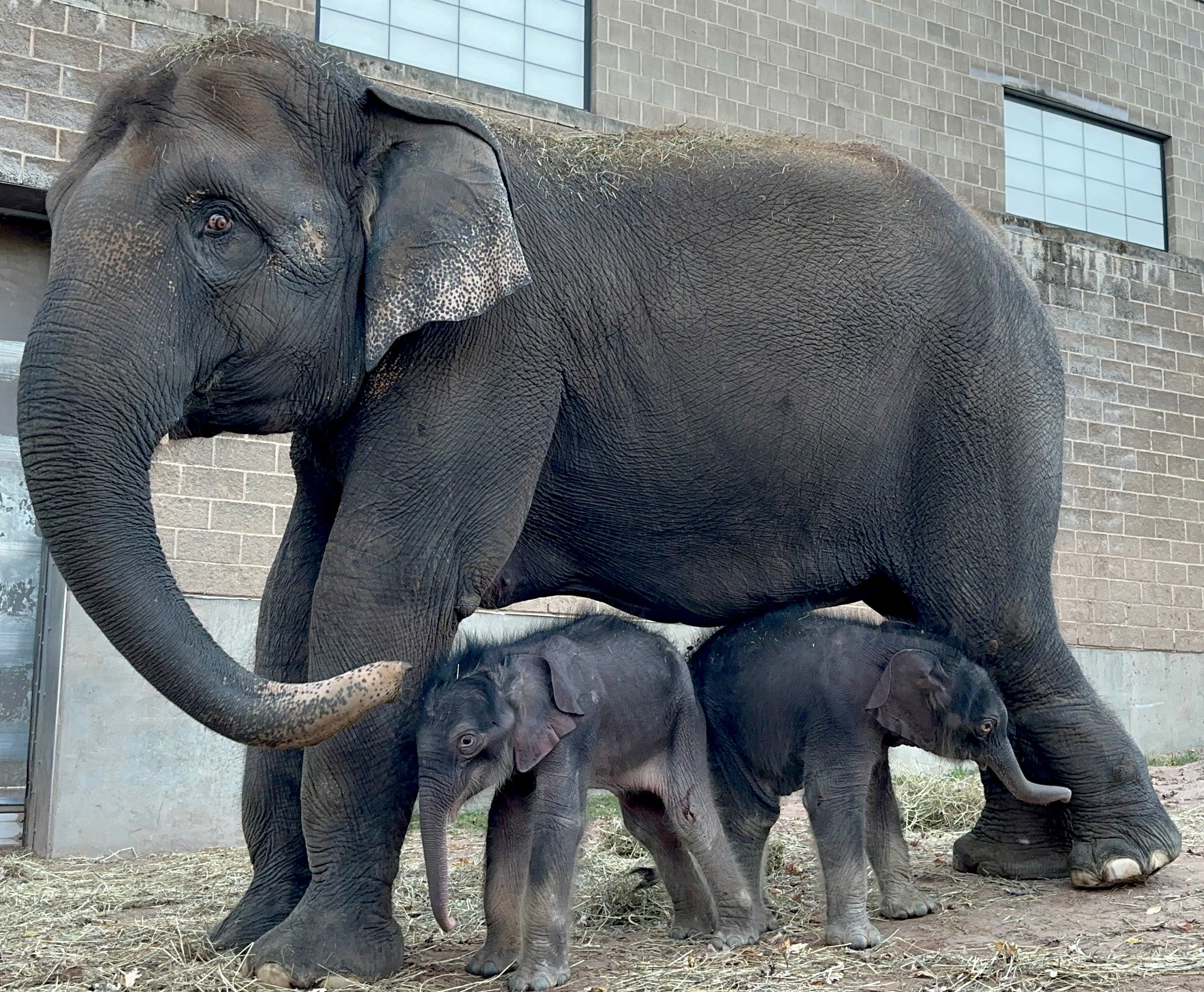Miracle elephant twins born in ‘historic moment’ at Syracuse zoo
Elephant twins comprise less than one per cent of elephant births worldwide

A New York zoo has made history after welcoming a pair of “miracle” elephant twins.
The Rosamond Gifford Zoo in Syracuse, New York, announced on 10 November that the two male Asian elephants were born to parents Mali and Doc last October.
“This is truly an historic moment for the zoo and our community,” said Onondaga County executive Ryan J. McMahon in a press release. “I couldn’t be prouder of our exceptional animal care team, the support of the veterinary staff and their tremendous dedication to Mali and the twins. The important research happening right here at the zoo will have a significant impact worldwide on behalf of this magnificent endangered species.”
The twins came as a surprise to zoo staff, due to the “sheer improbability” twin elephants and the “complexity of elephant ultrasounds,” the zoo said, adding that elephant twins comprise less than one per cent of elephant births worldwide.
The first male elephant was delivered at 2am, weighing 220 pounds. Ten hours later, Mali delivered the second male calf at 237 pounds, which was noticeably weaker than the first. The birth of a second elephant “astonished the animal care staff” but the animal care team and veterinary staff were quickly able to “significantly improve” the elephant’s condition.
“To date, there has never been a recorded case of surviving elephant twins in the United States,” the zoo said. “The few successful twin births have only taken place in their range countries in Asia and Africa and nowhere else in the world.”
Following the birth of the elephant twins, the Rosamond Gifford Zoo shared several sweet photos of the baby elephants to Instagram.
Asian elephants are classified as Endangered by the International Union for the Conservation of Nature (IUCN). According to the World Wildlife Fund, there are fewer than 52,000 Asian elephants left in the wild. These animals, which once roamed most of Asia, have been threatened by human conflict, habitat destruction and ivory poachers. Now, there are an estimated 20,000 Asian elephants left in the wild.
The zoo went on to explain how the mother elephant’s placentas will be used in research toward the development of a vaccine to combat Elephant endotheliotropic herpesvirus, or EEHV – a fatal strain of herpes believed to naturally occur among elephants in a dormant form. In 2020, Mali and Doc’s previous two calves, Batu and Ajat, died from EEHV.
The Rosamond Gifford Zoo said visitors will be able to catch a glimpse of the elephant twins at the zoo’s Helga Beck Asian Elephant Preserve daily from 11:00 to 11:30 am and 2:00 to 2:30pm.



Join our commenting forum
Join thought-provoking conversations, follow other Independent readers and see their replies
0Comments